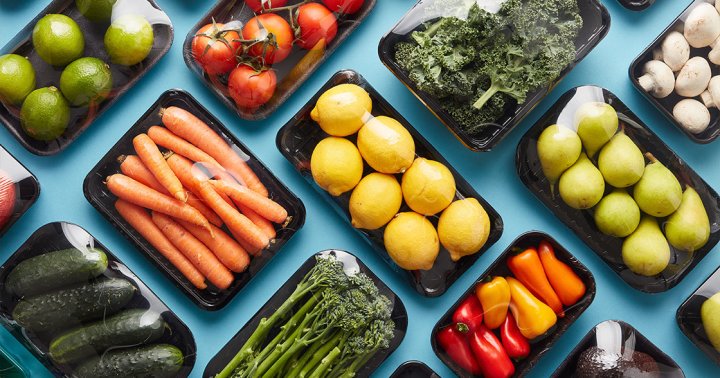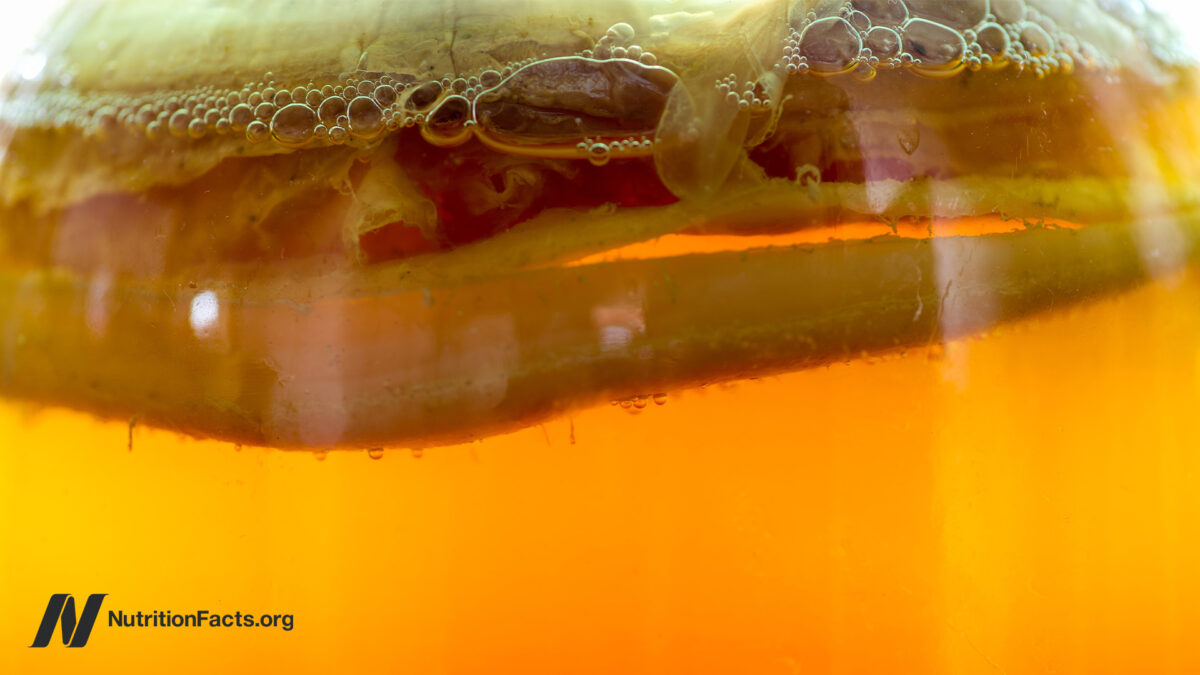Want A Healthier Gut? Eat This Many Fruits & Veggies Per Week
It's easier than you think.

Having a healthy gut can start a positive chain reaction in the body, as your gut impacts a number of other areas and functions. There’s a connection between your gut and your skin, your gut and your brain, and so on.
So it’s safe to say: Taking care of your gut is essential. But where does one start? Gastroenterologist Will Bulsiewicz, M.D., MSCI, author of The Fiber-Fueled Cookbook, prefers to begin with diet. Specifically, he recommends diversifying your plant intake. On the mindbodygreen podcast, Bulsiewicz shares the magic number of plants to consume each week for optimal gut health—find his benchmark below.
How many varieties of plants you should eat each week.
"When I think about variety [of plants], I go back to the American Gut Project, which is the origin of this concept of [how] dietary diversity translates into a healthier gut microbiome,” Bulsiewicz says. See, the American Gut Project conducted a study to understand more about the different kinds of bacteria present in the gut. In this study, researchers found not only that eating more plants, in general, can help improve gut health, but that a specific number of different plants each week led to the healthiest microbiome in those participating.
“What they discovered is that people who were consuming more than 30 varieties of plants per week had the healthiest gut microbiomes,” Bulsiewicz says. He adds: "Each individual plant is feeding different families of microbes, and a variety of microbes within an ecosystem, including the gut ecosystem, is a measure of health. It's a measure of resilience. Variety in our plates, translates into variety within our gut microbiomes, and that ends up becoming a win."
We know, 30 seems like a lot of different plants to eat in one week. It certainly takes some effort, which is why planning out your grocery trips on a piece of paper or notes app will be particularly helpful in meeting this goal. "Use every single meal, every single time you're in the kitchen, every time you go to the supermarket as an opportunity to emphasize dietary diversity," Bulsiewicz says. "If it's on your mind when you're in these places, then it happens. The next thing you know, you're not even counting, and you're doing 40 or 50 different plants in a week."
And here’s the thing—you don't just count the plants you eat as a dedicated snack or a side dish. Rather, you’re tallying up every single plant in your diet. For example, if you eat a slice of multigrain bread that has seven different grains in it, you’ve just added seven plants to your weekly count. The same goes for soups, salads, and smoothies—you can pack these meals with a variety of plants without thinking too much about it.
Another easy way? Add a scoop of mindbodygreen's organic veggies+ to your daily routine. The formula contains 31 powerhouse plant-based ingredients, including organic alkalizing sea vegetables, dark leafy greens, root vegetables, berries, herbal botanicals, digestive enzymes, prebiotic fiber, and probiotics. These ingredients help promote a healthy gut microbiome, help maintain healthy blood sugar levels, and support hormonal balance and detoxification.* When paired with a healthy, nutrient dense diet, this supplement can help boost your nutrient intake.*
For another simple hack, Bulszewicz recommends sprouting. Sprouting is the practice of growing your own edible sprouts from beans and legumes using jars or bags—no soil necessary. If you want to learn a bit more about this process, check out this how-to guide.
And at the end of the day, any extra plants you can add to your diet is a win. The goal is to eat as many different kinds of plants as possible to encourage better gut health. So if you don't exactly make it to 30, that's OK—as long as you're making it a priority to eat more fruits and veggies.
If you’re not sure where to start when it comes to a gut-healthy diet, try to get at least 30 different plants into your diet each week, as research shows this can create a healthier gut microbiome. To make the venture a bit easier, look for recipes that combine a bunch of plants like smoothies, soups, salads, and add consider adding a superfoods powder, like mbg's organic veggies+ to your diet.
And for more of Bulsiewicz's gut health tips, make sure to tune in to the full episode on Apple Podcasts, Spotify, or check out the video below.

 Kass
Kass 






























